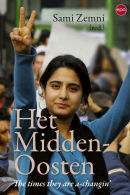Did you find this item worthwhile? Then please consider to support us.
(21-03-2013) The Brussells Award for Solidarity
(24-01-2013) AYSE BERKTAY: Biographical Outline - PEN Turkey Award - Photos - more about Ayse Berktay
(03-05-2013) The State of Torture in America
(25-04-2013) Iraq: Executions Surge but No Action on Reform
(24-04-2013) Shawki Omar, U.S. citizen held in Iraq prison, abused and discriminated against, wife ...
(04-04-2013) GICJ Strongly Condemns Recent Executions in Iraq
(05-12-2012) Cynthia McKinney, Sara Flounders travel to Pakistan in solidarity with political prisoner
(08-11-2012) ISRAELI HYPOCRISY AT MAVI MARMARA TRIAL
(11-07-2012) Guantánamo Bay Istanbul - A theatre of terror
(24-01-2013) AYSE BERKTAY: Biographical Outline - PEN Turkey Award - Photos - more about Ayse Berktay
The BRussells Tribunal is independent and wants to remain independent.
The BRussells Tribunal is an activist think tank and peace organisation with a special focus on Iraq. Read more...



 The times they are a-changin' is het eerste grondige Nederlandstalig overzicht dat voorbij oppervlakkigheden en algemeenheden wandelt, en ook nog eens de hele regio bestrijkt, van Egypte en Tunesië tot Marokko, Libië, Syrië, Libanon, Palestina, Jemen, Jordanië, Irak, Bahrein en Israël. Daar bestaat een woord voor: een standaardwerk.
The times they are a-changin' is het eerste grondige Nederlandstalig overzicht dat voorbij oppervlakkigheden en algemeenheden wandelt, en ook nog eens de hele regio bestrijkt, van Egypte en Tunesië tot Marokko, Libië, Syrië, Libanon, Palestina, Jemen, Jordanië, Irak, Bahrein en Israël. Daar bestaat een woord voor: een standaardwerk.